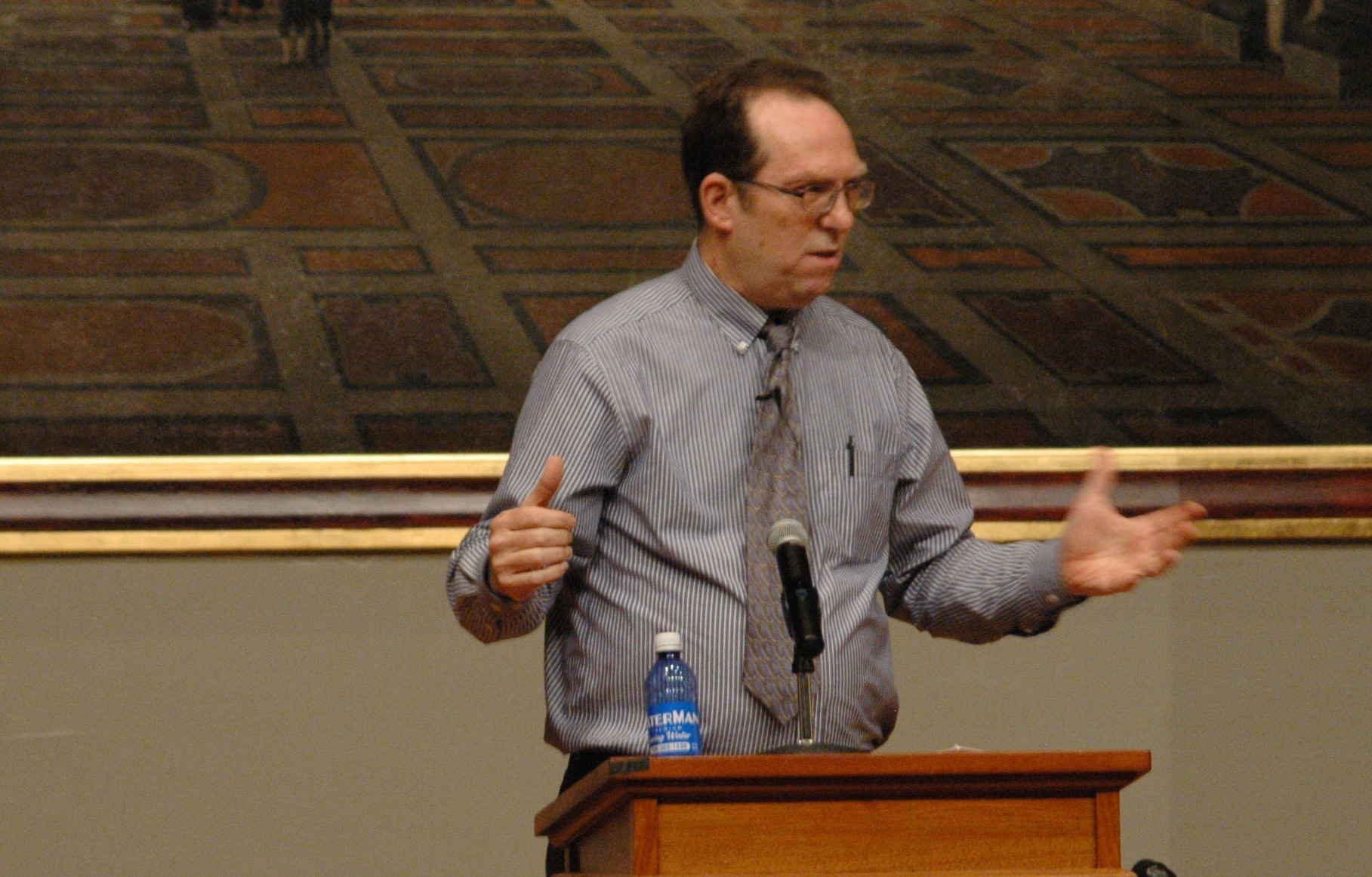Anthony Cody Speaks in Georgia: High Stakes Tests Are Lowering Expectations for Students and Teachers

By Joseph Ray Lavine.
A co-founder of the Network for Public Education addressed the ineffectiveness of current U.S. standardized testing and teacher evaluation standards in a speech at the University Chapel, at the University of Georgia, in Athens, Georgia, last Wednesday.
Anthony Cody, who also writes the education blog Living in Dialogue, spoke to a crowd of concerned students, teachers, administrators and parents and voiced his opposition to educational reform programs such as No Child Left Behind, Common Core, Race to the Top and Value Added Models.
These programs, which have garnered billions of dollars in government funds over the past 12 years, perpetuate inaccurate representation of student achievement and teacher effectiveness, Cody said.
“There’s a fiction that the high-stakes tests are raising the bar for our students,” Cody said in the speech. “This is not raising the bar. This is lowering expectations for our students, for our schools, and for our teachers.”
Programs like Common Core, RTTT and VAM exist in large part due to funding and advocacy from The Gates Foundation, which has prioritized a “measure to manage” principle, Cody said. The foundation, led by Bill and Melinda Gates, spent over $200 million to promote the Common Core standards.
It also worked closely with education secretary Arne Duncan and his staff during the creation of RTTT, a $4.3 billion contest for grant money that pressured states to adopt high standards and at one point highlighted the Common Core standards by name, according to the Washington Post.
“The fact is that the entire system is being changed and perverted and diverted into a measurement system,” Cody said. “Learning is being calibrated.”
Cody, who spent 24 years teaching high-needs schools in Oakland, California, said the flaw in these high-stakes standardized tests is that they do not measure a student’s true capacities for success.
Cody said that when he does workshops for teachers, they list critical thinking, collaboration and perseverance as qualities of their “ideal graduate,” but none of these qualities are measured by standardized tests.
What’s more, Cody said, is that Georgia and most other U.S. states are using these standardized test results as a significant indicator on teacher evaluations. These evaluative models, or VAMs, make it easier for principles to fire teachers that are deemed ineffective. The problem with these models, however, is that there are many variables that affect student performance, Cody said, and too much weight is being placed on test scores.
“Often it will be stated that teacher effectiveness is the largest in-school variable affecting student achievement, and that technically is true, but when you realize that that teacher variation only accounts for Anthony Cody Speaks in Georgia: High Stakes Tests Are Lowering Expectations for Students and Teachers - Living in Dialogue:











